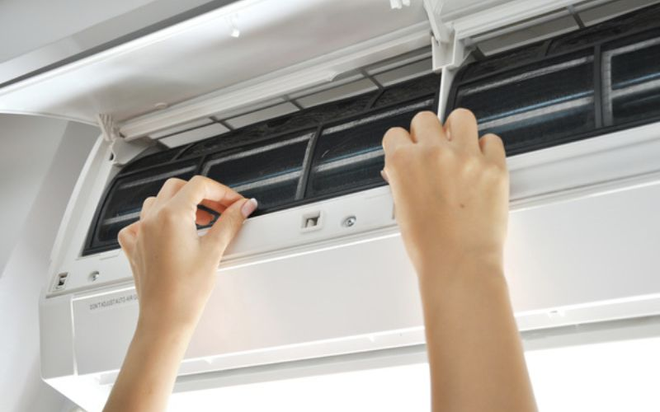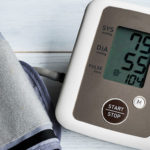As summer approaches and temperatures rise, air conditioners have become a necessity. However, using air conditioning in the summer not only affects the temperature and our comfort but also has an impact on various health aspects.
Many people experience dry mouth, coughing, and watery eyes after prolonged exposure to air conditioning without proper hydration. But why does this happen?
Reasons Why Air Conditioning Can Cause Dry Nose and Throat
Dehydration
Spending extended periods in a cooled environment can lead to dehydration, as the body loses moisture from the skin to the indoor air. The throat and nose are particularly affected as the continuous inhalation of cold air inhibits saliva production.
Low Humidity
The cooling principle of air conditioners involves heat absorption. During this process, air passes through multiple cooling components, causing the moisture in the air to condense and turn into liquid when it encounters low temperatures. This results in water dripping from the AC’s pipes.

Sleeping with Mouth Open
Sleeping with your mouth open can lead to nasal congestion due to a deviated nasal septum. This can also result in a dry throat and stuffy nose each morning.
Lack of Regular Maintenance and Cleaning
If air conditioners are not properly maintained and cleaned regularly, dust, bacteria, and mold can accumulate. The air passing through the AC unit can then carry these contaminants, leading to indoor air pollution and negatively impacting your health and quality of life.
Lack of Ventilation
Rooms with air conditioning are often sealed and lack proper ventilation, isolating the indoor air from the outdoor environment. The stagnant air can trap dust and bacteria, posing potential health risks.
3 Things to Keep in the Room When Using Air Conditioning
1. Hang a Wet Towel
If you find the indoor air excessively dry due to air conditioning, try hanging a wet towel below the AC unit. This simple trick can effectively improve the humidity of the air.
All you need is a clothes hanger. Soak the towel and hang it below the air vent of the AC. If there’s a musty smell in the room, add some white vinegar to the water for its antibacterial and disinfecting properties.
2. Place a Bucket of Water
Spending extended periods in an air-conditioned room, especially at night, can be made more comfortable by placing a bucket of water below the AC unit. This simple addition can effectively improve the dry environment.

If mosquitoes are a problem during the summer, add some mosquito-repelling mint essence or a few drops of essential oil to the water. This way, you can enjoy a peaceful night’s sleep without the nuisance of mosquito bites and with a pleasant fragrance in the room.
3. Use a Circulating/Oscillating Fan
While there’s been online discourse about the effects of using air conditioning and fans simultaneously, this combination lacks scientific basis. However, we must acknowledge that a fan, when used with air conditioning, can make the room feel cooler.
Simply turn on the AC and a circulating fan. Even at the lowest setting, the fan’s air circulation, combined with the AC operating at a moderate temperature, will distribute the cool air evenly to different areas of the room.
If you have a spacious room and a less powerful AC unit, give this method a try. It might also help reduce energy consumption. Of course, using a fan is not mandatory and depends entirely on your personal preference. If the indoor temperature is relatively high, using a fan can help you achieve the most comfortable state.
Tips to Relieve Stuffy and Dry Nose Caused by Air Conditioning
Stay Hydrated and Nourished
Drink plenty of fluids, aiming for 1.5 to 2 liters of water, fruit juices, and soups daily. This will boost your immune system and protect your throat and lungs.

Utilize the Sleep Mode
Most modern air conditioners feature a sleep mode or night mode. Activating this mode before bedtime will help prevent dehydration and reduce humidity fluctuations, ensuring a more comfortable sleep.
Avoid Sudden Temperature Changes
Sudden temperature changes can make it challenging for your body to adapt, leading to heat shock and illness. When entering a room from outdoors, adjust the AC temperature gradually. You can also use an electric fan to regulate the room temperature. Aim for an 8-10 degree Celsius difference between the indoor and outdoor temperatures to save energy and maintain a stable body temperature.
Regular AC Maintenance
Regularly clean your air conditioner every 3 to 6 months to ensure proper air circulation, reduce bacteria and mold growth, save energy, and prolong the lifespan of your unit.
Source: Sohu
Ways to Beat the Summer Heat: 10 Cool Strategies
With temperatures soaring to over 40 degrees Celsius in some parts of the northern region, this summer heatwave is causing considerable discomfort and inconvenience. The roads are practically melting in some areas. To keep yourself safe and bearable, here are some tips on how to cope during these hot days.






































